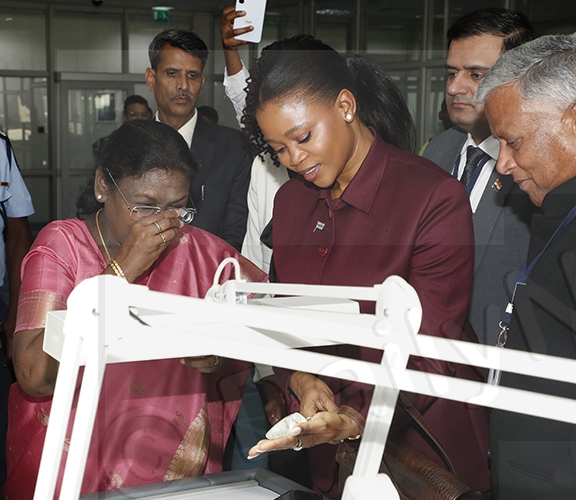Recent Inflation patterns worrisome
26 Jan 2022
Pula currency continues to experience a short-lived lifespan compared to yesteryears owing to recent inflation rates experienced.
Price escalation is only a couple of months old and already the nation is crying out for help; affordability seems to be far-fetched due to an increase in prices of goods and services, not just of individual items.
Notably, a statement from Central Statistics Office (CSO) Botswana, says that the nation’s annual inflation rate rose to 8.7 per cent in December 2021 from 8.6 percent in November.
Also, the statement says that prices accelerated in almost all categories, mostly alcoholic beverages and tobacco (9.4 per cent vs 9.2 per cent in November); food and non-alcoholic beverages (7.2 per cent vs 6.7 per cent), in particular oils and fats (27.8 per cent); housing and utilities (8.2 percent vs 8.1 per cent) and miscellaneous goods and services (7.2 per cent vs 7 per cent).
Furthermore, transport prices slowed a bit but remained elevated (18.3 per cent vs 18.7 percent). Every month, consumer prices were up 0.1 percent, after being unchanged in the previous month, the statement revealed.
Given this, economist and head of research for Motswedi Securities Mr Garry Juma confirmed that in terms of inflation prices of most commodities had gone up.
This, he said included prices for fuel and electricity citing, that Botswana Power Cooperation (BPC) recently proposed yet another tariff increase this year.
Mr Juma labeled this period “tough-times” citing that it was no doubt households’ income was under extreme pressure.
Some of the factors that had caused the increase in inflation were outside citizens’ control and fuel price rise was registered as a topmost example since Botswana was a native importer of fuel, he said. Likewise, for any alteration that happened in the fuel market the government automatically turns to adjust prices locally as seen recently and before, he said.
As a result, Mr Juma stated that it was not a surprise that we had another fuel increase last year which further pushed up prices of petrol and diesel fares.
“…and we have seen an increase in most of the commodities across the board because of the base effect,” he said.
Mr Juma indicated that their projections depict that inflation would come down towards year-end mainly due to the base effect.
Some of “these increases like last year were once-off increases towards overall adjustments which will not be repeating this year and even if they did the increasing magnitude will not be high as before, which will help reduce inflation, mainly due to base effect, “he said.
Moreover, he said even though the rates might come down they expected them to be at three to six percent as per the Bank of Botswana objective range. In a nutshell, the source of income would remain under pressure and indicators like debts especially from banks again would also demand payments.
Asked to comment on ideal interventions that government could relay to cushion the heavy burden exerted on citizens as a result of increased inflation, Mr Juma said as benchmarked from other economies subsidies could be imposed on fuel and electricity among others. He said to this effect a thorough analysis made illustrated that subsidies were not sustainable and had a short term.
Similarly, resources used to provide that subsidy could strategically be used for other developments now they had to cover subsidies which in the long term would not be sustainable, he said.
Mr Juma said it was encouraging that at the macro level there were some positive strategies from the government that he believed in the long term would help cushion the country against imported food inflation.
He added that over the years there has been an increase in general prices of food.
Therefore, he stated that the policy by the government to continue supporting the agricultural sector through initiatives such as ISPAAD would yield dividends in the long run given that most of the food staff were imported.
At household levels, Mr Juma advised that consumers could adopt various measures to cushion the impact such as sharing transport to work or dropping children to and from school given the rise in fuel prices.
He said there was also a need to shop around and take advantage of promoters, discounts, and buying in bulk. Every Pula saved in this environment will certainly go a long way. ENDS
Source : BOPA
Author : Marvin Motlhabane
Location : GABORONE
Event : INTERVIEW
Date : 26 Jan 2022





